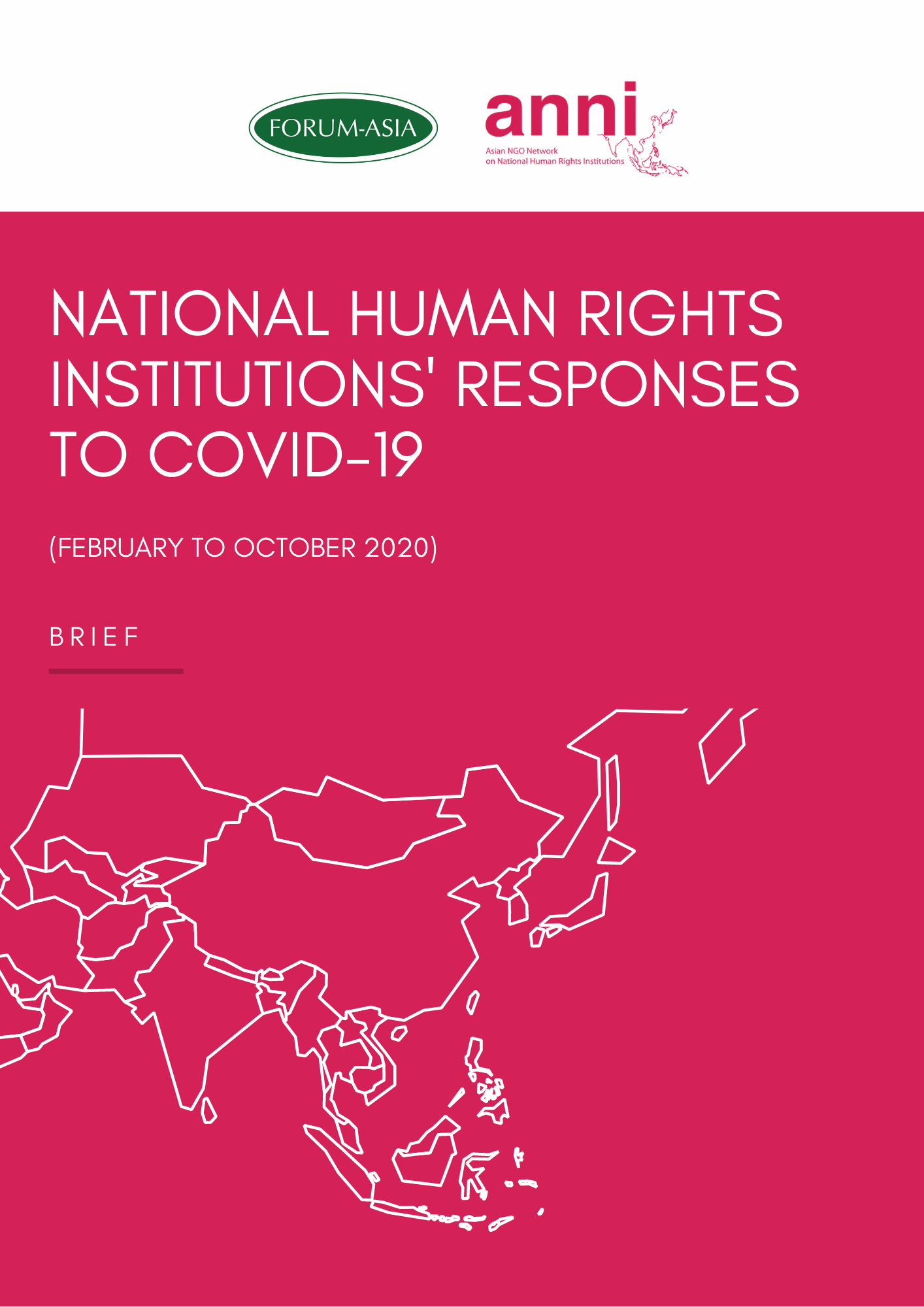There have been more than 46 million cases, including more than 1.2 million deaths across the world[i] (up to 31 October 2020) since the declaration of COVID-19 as a pandemic by the World Health Organization (WHO) in March 2020.
The continued prevalence of this global health emergency worldwide has been an unprecedented occurrence in recent history, and has presented its own set of challenges for human rights across the world. Not only has it affected millions of people in terms of health, but has also brought to the fore the glaring inequalities that exist in societies across the world at the political, social, economic, cultural, and civic levels.
During these challenging times, National Human Rights Institutions (NHRIs) around the world and in Asia have had to address several human rights issues arising as a result of governments’ response to, and their handling of, the COVID-19 pandemic at the country levels. NHRIs across the world have been performing various functions[ii], like monitoring, advocacy, providing recommendations, issuing statements, and initiating legal actions, and have been raising the concerns of marginalised and vulnerable groups, given the higher and harsher impact of the pandemic on their lives.
This brief is intended to present a broad overview of the kinds of interventions made by NHRIs in Asia during the COVID-19 pandemic, as well as to highlight the various human rights issues these have addressed.
[i] https://www.worldometers.info/coronavirus/worldwide-graphs/#case-timeline
[ii] https://www.asiapacificforum.net/media/resource_file/COVID-19_NHRIs_Asia_Pacific.pdf
***
Please click here to download the Brief.





